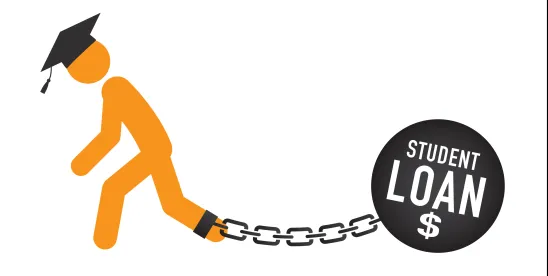On April 17, 2024, the Biden administration published a proposed rule that would amend current regulations to allow for certain student loan debts to be waived, potentially providing relief to millions of student loan borrowers.
Quick Hits
- The U.S. Department of Education proposed a rule to amend the Higher Education Act to allow for certain student loan debts to be waived.
- The proposed rule is part of the Biden administration’s ongoing effort to address student loan debt.
- Comments on the proposed rule are being accepted through May 17, 2024.
The U.S. Department of Education published a notice of proposed rulemaking (NPRM) in the Federal Register to implement its plan to tackle student loan debt, as it is estimated that federal and private student loan debt reached approximately $1.77 trillion in 2023.
The Biden administration’s latest plan would help more than 25 million student loan borrowers who have seen their debt balances balloon to more than they originally borrowed. The plan would also help more than 2 million borrowers who have carried their debts for decades and another 2 million borrowers who would have qualified for existing federal programs but failed to enroll. Borrowers “who received loans to attend programs or institutions that … failed to deliver sufficient financial value” could see relief as well.
Unlike prior attempts to provide student loan debt relief, the proposed plan utilizes the Higher Education Act of 1965 (HEA) to waive repayments of loans to provide debt relief targeted to address certain specific circumstances. For example, the plan would authorize the secretary of education to waive debts when there is growth in a borrower’s loan balance beyond what was owed upon entering repayment. The plan also allows the secretary of education to consider the amount of time since the loan first entered repayment, whether the borrower meets certain criteria for loan forgiveness or discharge under existing authority, and whether a loan was obtained to attend an institution or program that was closed under specific circumstances.
As drafted, the plan would authorize waivers up to the full amount of the outstanding balance for loans being repaid on income-driven repayment (IDR) plans, if the borrower’s annual income is equal to or less than $120,000 (if the borrower files federal tax returns as “single” or “married filing separately”) or $240,000 (if the borrower’s filing status is “married filing jointly”). For borrowers not on an IDR repayment plan, the proposal authorizes a waiver of $20,000. The plan also contemplates full waivers for borrowers who have been making payments for almost twenty years.
Notably, the notice of proposed rulemaking does not include proposed regulations for waivers for hardship, which the Biden administration is reportedly planning to address via a separate rule.
Challenges to the Biden Administration’s Student Loan Debt Relief Plans
The proposed rule comes after the administration’s prior attempt at student loan debt forgiveness was struck down by the Supreme Court of the United States in June 2023. That plan had relied on the Higher Education Relief Opportunities for Students Act of 2003 (usually called the HEROES Act), which, the administration argued, provided COVID-19–related emergency powers to “waiv[e] and modify[] certain provisions governing student-loan cancellation and discharge.” In the majority decision, Chief Justice John Roberts stated that the Biden administration and the secretary of education had rewritten the law.
“The Secretary’s comprehensive debt cancellation plan cannot fairly be called a waiver—it not only nullifies existing provisions, but augments and expands them dramatically,” Chief Justice Roberts wrote. “However broad the meaning of ‘waive or modify,’ that language cannot authorize the kind of exhaustive rewriting of the statute that has taken place here,” he added.
Currently, the administration is facing another legal challenge to its Saving on a Valuable Education (SAVE) repayment plan. The SAVE plan is an IDR plan that calculates payments based on a borrower’s income and family size—not loan balance—and forgives remaining balances after a certain number of years.
Seven states—Missouri, Arkansas, Florida, Georgia, North Dakota, Ohio, and Oklahoma—filed a lawsuit on April 9, 2024, against President Biden, Secretary of Education Miguel Cardona, and the U.S. Department of Education, challenging the SAVE plan. The lawsuit alleges the president is “unilaterally trying to impose an extraordinarily expensive and controversial policy that he could not get through Congress” through the program. The lawsuit follows a separate suit challenging the same loan forgiveness program filed by eleven states on March 28, 2024.
Next Steps
Student loan borrowers and higher education institutions alike may want to take note of the proposed rule’s potential changes. Specifically, higher education financial aid offices may need to advise borrowers on the new rules and stay abreast of the evolving regulatory landscape.
However, like its predecessor plan, the Biden administration’s latest initiative may be challenged in the federal courts. Moreover, efforts to publish rules to provide student loan debt relief may be complicated by the Supreme Court’s forthcoming decision in a high-profile case seeking to change the long-standing Chevron doctrine, which grants deference to federal agencies’ reasonable interpretations of ambiguous statutes.
If the Supreme Court strikes down Chevron deference, federal agencies like the Department of Education might have a harder time interpreting laws, such as the HEA, in a way that would authorize student loan debt relief plans.
Interested parties can submit comments on the NPRM through May 17, 2024. The Department of Education hopes to finalize the rules by this fall.






 />i
/>i

